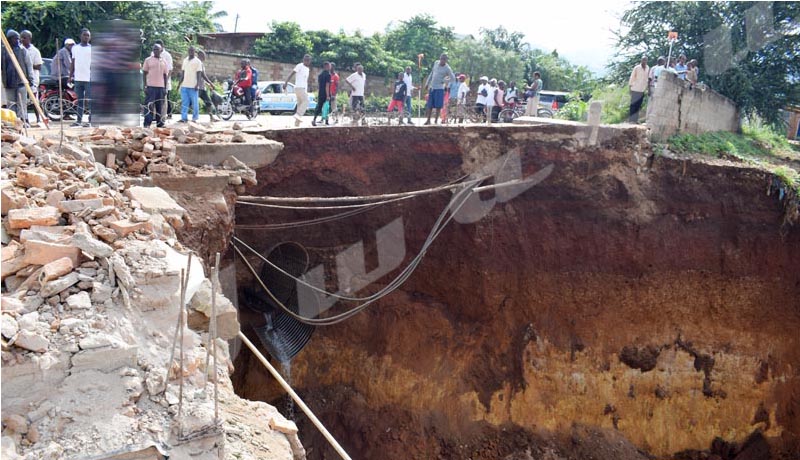Many houses have already been destroyed and others are about to collapse in different parts of the economic capital of Burundi. An expert says there has been a poor land management.

A road is threatened by a ravine in Kinanira area
In Kinanira neighborhood of Muha urban commune, the road is about to be destroyed by a ravine which has already cause the destruction of houses, a church and school.
“It collapses every day even when it is not raining. This road is the next to be destroyed,” says a man met on the spot. The ravine is growing wider and a high school known as Petit Séminaire Kanyosha is highly likely to be destroyed next in case the road is destroyed.
In Kanyosha commune, Mugoyi water collector built in 1987 was totally destroyed. This causes the neighboring population to scatter whenever there is rain.
In Ntahangwa commune, in the north of Bujumbura, many houses have been destroyed and families are obliged to move because of soil compaction in Gikungu area.
Jean Marie Sabushimike, an environment expert and university lecturer, says the fundamental cause of all these natural disasters is the poor land management. “The triple relationship between land use planning, climate change and disaster risk must be considered”.
Mr. Sabushimike says people have to ask themselves some questions before they start building. “How do we prepare the ground? On which ground are we going to build? Are we aware of the climate change?”
This expert says there will always be natural disasters especially in the context of climate change as long as there are no prior studies and prevention plan.
He calls on the administration to use risk prevention plans that were prepared and recommended for each urban commune in previous studies (Contingency plan).
Mr. Sabushimike says this after a team composed of the Civil Protection police staff, the Red Cross, experts and journalists jointly conducted a field visit to see the damages already caused by natural disasters in the southern and northern parts of Bujumbura this Tuesday 23 April 2019.



















 IWACU Open Data
IWACU Open Data

